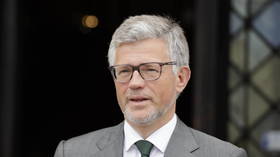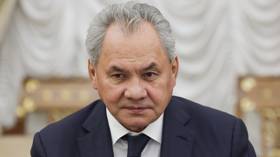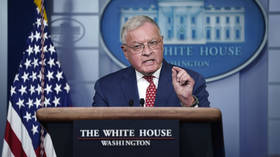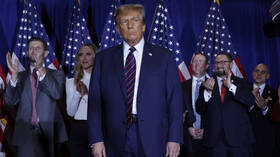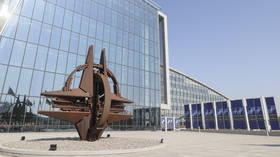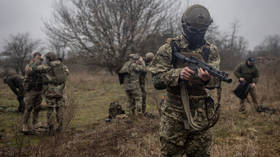Germany gives Ukraine advice on Nazi-collaborator national ‘hero’ – media
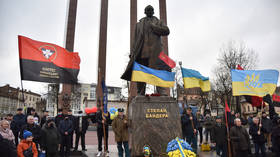
Germany has tacitly criticized Ukraine for the apologism of Nazi-collaborator Stepan Bandera advocated by Kiev’s ambassador. The country should join the Berlin-based International Holocaust Remembrance Alliance (IHRA), where Bandera’s role in ethnic cleansings can be discussed, German anti-Semitism commissioner Felix Klein said on Monday.
The IHRA is an “appropriate forum” for discussing the issue on the international level, Klein told Funke Mediengruppe. This suggestion was in response to claims by Ukrainian Ambassador Andrey Melnik, who said there was no evidence that Nazi collaborator Bandera was responsible for the persecution of Poles and Jews in Ukraine during World War II.
Bandera is considered a national hero in Ukraine due to his role as a nationalist leader. Forces loyal to him were involved in mass killings and expulsions of non-Ukrainians, and sided with the invading Nazi German forces, hoping that Adolf Hitler would allow a Ukrainian state to exist under Berlin’s protectorate.
The Germans arrested Bandera in 1941 after he refused to accept that his plan to proclaim an independent Ukraine would not be allowed. He was released three years later in hopes that he could lead his Organization of Ukrainian Nationalists to fight the advancing Red Army on the eastern front.
Melnik’s attempt to whitewash Bandera’s role in the persecution of minorities in Ukraine prompted rebuke from Poland and Israel. The Ukrainian Foreign Ministry distanced itself from the diplomat, saying he was expressing his personal views. Kiev reportedly wants to recall the ambassador from Berlin and appoint him deputy foreign minister.
Klein said that he found Melnik’s comments problematic, because they allegedly “feed the Russian narrative” about Ukraine and “cause division and misunderstanding among friendly states.”
Moscow believes the Ukrainian government is beholden to the whims of radical nationalists, some of whom openly espouse neo-Nazi beliefs, and that they prevented the government in Kiev from seeking reconciliation with the Donbass region in the east, while pushing for military action against them.
Russia sent troops into Ukraine on February 24, citing Kiev’s failure to implement the Minsk agreements, designed to give the regions of Donetsk and Lugansk special status within the Ukrainian state. The protocols, brokered by Germany and France, were first signed in 2014. Former Ukrainian President Petro Poroshenko has since admitted that Kiev’s main goal was to use the ceasefire to buy time and “create powerful armed forces.”
In February 2022, the Kremlin recognized the Donbass republics as independent states and demanded that Ukraine officially declare itself a neutral country that will never join any Western military bloc. Kiev insists the Russian offensive was completely unprovoked.
